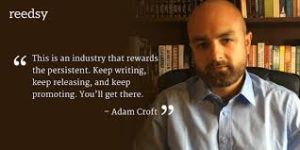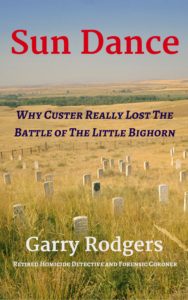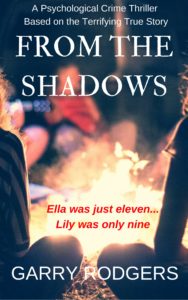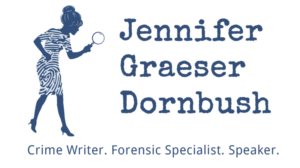 …Or How to Capitalize On An Unconventional (aka Crazy) Childhood & Other Personal Adventures — Los Angeles based screenwriter, author and speaker, Jennifer Graeser Dornbush chats about her life as a coroner’s daughter, her new mystery novel The Coroner, her love of forensics, the realities of working in Hollywood and what common crime writers can do to capitalize on their own personal stories.
…Or How to Capitalize On An Unconventional (aka Crazy) Childhood & Other Personal Adventures — Los Angeles based screenwriter, author and speaker, Jennifer Graeser Dornbush chats about her life as a coroner’s daughter, her new mystery novel The Coroner, her love of forensics, the realities of working in Hollywood and what common crime writers can do to capitalize on their own personal stories.
Hi Jen! Welcome to DyingWords! We’ve kicked around crime writing & screenplay ideas for a while now, but have something in common besides forensic and scribing stuff. You grew up in northern Michigan, close to me in southern Manitoba, Canada—both of us under very unusual circumstances. I won’t shudder you with mine, but tell us about yours.
Long before American television was saturated with CSI and Forensic Files, I was living my own weekly CSI adventure with my family in northern Michigan. My father was a medical examiner for three counties and my mother assisted as his office manager. They ran the office out of our home because the county was underfunded.
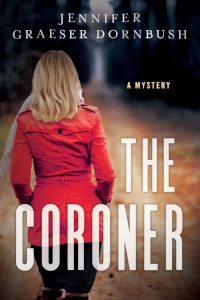 Dad performed autopsies at the small county hospital morgue, but all the records, paperwork, and photographs were kept in our family office. Samples of blood and body tissue were stored in a basement freezer, right under the pork chops and frozen beans like some B-rated horror flick. Dinnertime conversations often revolved around the case of the week. “Let me tell you about an interesting suicide I saw today,” my dad would say. “Oh, and pass the corn, please.”
Dad performed autopsies at the small county hospital morgue, but all the records, paperwork, and photographs were kept in our family office. Samples of blood and body tissue were stored in a basement freezer, right under the pork chops and frozen beans like some B-rated horror flick. Dinnertime conversations often revolved around the case of the week. “Let me tell you about an interesting suicide I saw today,” my dad would say. “Oh, and pass the corn, please.”
When I started writing I began to tap into my past and the treasure trove of knowledge from those decades of death investigation with my family. My new novel, The Coroner is one result of that.
The title “Coroner” is sorta familiar to me… like deja vu all over again. What’s your new novel The Coroner about?
Recently engaged and deeply ensconced in her third year of surgical residency in Chicago, Emily Hartford gets a shock when she’s called home to Freeport, MI, the small town she fled a decade ago after the death of her mother. Her estranged father, the local medical examiner, has had a massive heart attack and Emily is needed urgently to help with his recovery.
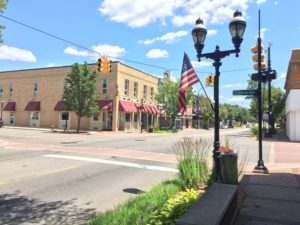 Not sure what to expect, Emily races home, blowing the only stoplight at the center of town and getting pulled over by her former high school love, now Sheriff, Nick Larson. At the hospital, she finds her father in near total denial of the seriousness of his condition. He insists that the best thing Emily can do to help him is to take on the autopsy of a Senator’s teen daughter whose sudden, unexplained death has just rocked the sleepy town.
Not sure what to expect, Emily races home, blowing the only stoplight at the center of town and getting pulled over by her former high school love, now Sheriff, Nick Larson. At the hospital, she finds her father in near total denial of the seriousness of his condition. He insists that the best thing Emily can do to help him is to take on the autopsy of a Senator’s teen daughter whose sudden, unexplained death has just rocked the sleepy town.
Reluctantly agreeing to help her father and Nick, Emily gets down to work, only to discover that the girl was murdered. The autopsy reminds her of her many hours in the morgue with her father when she was a young teen―a time which inspired her love of medicine. Before she knows it, she’s pulled deeper into the case and closer to her father and to Nick―much to the dismay of her big city fiance. When a threat is made to Emily herself, she must race to catch the killer before he strikes again in The Coroner, expertly written and sharply plotted, perfect for fans of Patricia Cornwell and Julia Spencer Fleming.

You have a set of guidelines you use when drafting stories about real people or events. What does that look like?
There are many more from the hundreds of stories in my memory bank. But when writing about the past, I try to keep the following things in mind:
* Base characters off of real people but give them different names, personality traits, and visual description.
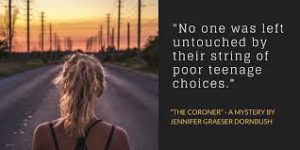 In The Coroner, Dr. Emily Hartford was based off of conglomeration of myself, and my two younger sisters. Emily is little bits of all of us. My middle sister is more blood and guts oriented like Emily. My younger sister has the tenacity, style, and individuality of Emily. And I have lived in major cities, including Chicago, for most of my life, but always find myself returning home to my rural roots.
In The Coroner, Dr. Emily Hartford was based off of conglomeration of myself, and my two younger sisters. Emily is little bits of all of us. My middle sister is more blood and guts oriented like Emily. My younger sister has the tenacity, style, and individuality of Emily. And I have lived in major cities, including Chicago, for most of my life, but always find myself returning home to my rural roots.
* Use real places to help with world building.
For instance, the town of Freeport is based on my hometown of Fremont. I know, not a far cry from its original name. But that actually helped me picture the real place when I wrote. Of course, I kept the place of Chicago and I think that helps ground the story some and gives it an element of reality. When I write I picture different places around “Freeport.” The library, the downtown, the lakes, countryside, hospital. This helps me create authentic descriptions. I also have a deep, deep love for the place where I grew up. I think that love shows through in the tone and in how Emily, Nick, and her father view Freeport. I really want Freeport to be a character unto its own.
* Tap into the unpleasant memories.
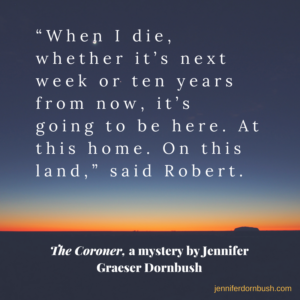 Some of the memories I have of being a coroner’s daughter are neutral, some comedic, some embarrassing, and some downright unpleasant or scary. For instance, we had a human leg in our barn for years and I was scared to into the barn alone with that leg. This was really bummer (not to mention a bit smelly) because our childhood fort was situated right above it in the barn loft. I would fling the barn door open, flip on the light, and then run past the leg and scramble up the ladder to get to my loft fort where I could spend hours reading and holding tea parties.
Some of the memories I have of being a coroner’s daughter are neutral, some comedic, some embarrassing, and some downright unpleasant or scary. For instance, we had a human leg in our barn for years and I was scared to into the barn alone with that leg. This was really bummer (not to mention a bit smelly) because our childhood fort was situated right above it in the barn loft. I would fling the barn door open, flip on the light, and then run past the leg and scramble up the ladder to get to my loft fort where I could spend hours reading and holding tea parties.
So rewrite your scary childhood memories in a way that takes power away from the scary and unsavory. Keep the emotion and be true to the experience. Writing it removes the negative power it holds in your memory. Sharing makes it seem less scary.
* Feel the fear and use it!
We all have those tangible fears like fear of heights, snakes, or tornados. But what are your biggest psychological fears? Figure it out and tap it that for your characters. One of mine is fear of missing out. I think Emily carries that same fear because of the trauma she experienced when she was left out of her mother’s death investigation. This drives everything she’s done in her life since. She’s gone full out to experience life at its fullest. Even in her romantic relationship with Brandon. He leads her into a world she would have never experienced back in Michigan.
* Embrace the crazy.
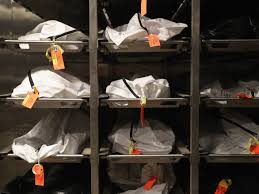 Everyone’s childhood is unique and special. Once you can frame it this way in your mind, it becomes less embarrassing. Try to see your experiences as a view into a world that no one has ever experienced before and is dying (no pun intended) to know about. I spent many years been deeply embarrassed and disgusted by what my father did for a living. I thought it was weird and gross. This was pre-Forensic Files era when no one knew anything about forensic science and Abby Scuito wasn’t making it cool on NCIS. Where was Abby when I was a teen!? We woulda been Insta-besties. I know it. After all, dead bodies sometimes slept in my garage.
Everyone’s childhood is unique and special. Once you can frame it this way in your mind, it becomes less embarrassing. Try to see your experiences as a view into a world that no one has ever experienced before and is dying (no pun intended) to know about. I spent many years been deeply embarrassed and disgusted by what my father did for a living. I thought it was weird and gross. This was pre-Forensic Files era when no one knew anything about forensic science and Abby Scuito wasn’t making it cool on NCIS. Where was Abby when I was a teen!? We woulda been Insta-besties. I know it. After all, dead bodies sometimes slept in my garage.
* Leave the family skeletons in the closet.
We literally had a family skeleton. His name was Sam and he was a made of real human bones. He spent a good deal of time in my father’s medical practice, but in his later years ended up living in a box in our barn. Sam died of lung cancer. Or so we surmised by evidence of a cigarette dangling from his yellowed teeth bones. Sam has since gone on to enjoy the rest of his boney life in a high school biology lab.I suspect I’ll get disagreement here, but I’m not a big fan of using fiction to launch a passive aggressive attack on family, air dirty laundry, or take revenge on a family member by making them an unsavory antagonist.

Show some human decency and respect the privacy of yourself and your real life family. There’s enough other drama and dysfunction out there to go around. So, just to be clear, none of the things that happened to the Hartford family ever happened to my own mom and dad. Their circumstances, backstories, and demises are purely, 100 percent fictional!
* If it made you cringe, use it!
Those embarrassing moments and experiences of our childhood are universal. Draw from these because they will help your audience become endeared to your characters.I’ve had my share of embarrassing moments as a coroner’s daughter. I’ll never forget the time I was dating my now husband and his friends came over. They were in the basement hanging out when they decided to look in the fridge for some soda. Instead, they found blood vials labeled with the names and DODs of the deceased. This was simply the property of the medical examiner’s office, nothing sinister.
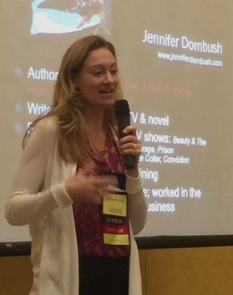 This particular incident didn’t make it into the current novel, but one can imagine how awkward or odd it might have been for Emily, as a young teen, to have a dating life. It didn’t scare Nick away. And thankfully, not my husband either. Honor the real victims. In The Coroner, Julie Dobson’s murder is based off a girl in my hometown who was thrown from her horse, hit her head, and as a result, died. She and I were both in junior high school when this happened.
This particular incident didn’t make it into the current novel, but one can imagine how awkward or odd it might have been for Emily, as a young teen, to have a dating life. It didn’t scare Nick away. And thankfully, not my husband either. Honor the real victims. In The Coroner, Julie Dobson’s murder is based off a girl in my hometown who was thrown from her horse, hit her head, and as a result, died. She and I were both in junior high school when this happened.
There was nothing sinister about girl’s death. It was purely accidental, but the tragedy of this young girl’s early demise deeply affected my community. I wanted to memorialize this young victim. She may have died long ago, but she’s not forgotten. When I was trying to come up with a case for Emily to investigate, I started playing the “what if” game. What if a teen equestrian were suddenly found dead? What if it were a murder? Who would want her dead and why? And the rest is between the jacket cover.
What inspired you to first start writing?
I’ve been writing since before I could actually write, so I guess you could say it was a gift that was given to me rather than something that inspired me. I’m grateful every day for this gift and my prayer is that I will continue to be a good steward of it.

What piece of advice do you have for authors or screenwriters starting out?
Have patience. Have perseverance. Have a real life.
Well put. Now, what was your favorite book when you were a kid? Do you have a favorite book now?
I have so many… I can’t choose just one. My tastes vary a lot. As a kid, my parents led me to the shore of story sea. I waded in and never got out.
Do you ever get writer’s block? If so, what do you do to get back on track?
 I guess that depends on what is the definition of Writer’s Block? Do I have those days when I feel stuck and muddy and don’t get much done? Of course. That’s part of the job. Do I even not know what to write about? Never. I think the best tool for a writer is to cultivate the skills of listening and looking around. If you do, you’ll find there’s always fodder for story.
I guess that depends on what is the definition of Writer’s Block? Do I have those days when I feel stuck and muddy and don’t get much done? Of course. That’s part of the job. Do I even not know what to write about? Never. I think the best tool for a writer is to cultivate the skills of listening and looking around. If you do, you’ll find there’s always fodder for story.
You’ve consulted with writers on various TV series like… Suits, Prison Break, Rectify, White Collar and Bull. Can you tell us about those experiences?
It probably sounds more exciting than it really is. Often times writers on shows will contact me for forensic advice. Some of the writers I know personally. Others, I do not. Mostly I serve them via email correspondence so I’m not on set or in the writers’ room, per se. But they do send me really interesting questions like…
If a body was burned to ash, how much tissue/bone/teeth/other substance do we need to DNA match the remains?
Or this one… a man who already takes smart drugs (like Adderall or Ritalin) is poisoned by someone who secretly put heavy doses of his smart drug in his hand sanitizer. When the man uses the hand sanitizer he absorbs the smart drug through his skin and it’s enough (in addition to the smart drug he already took orally) to cause a heart attack. Would this work?
You started writing in Hollywood before you delved into novels. Or, I think you once corrected that “Hollywood” is actually called the Los Angles film industry business. What’s that like, being around “Hollywood” and all?
 That’s right… after several other careers in journalism and teaching, I trained to be a screenwriter and moved to “Hollywood” 12 years ago. I write film and TV. I had a film release in September (God Bless the Broken Road). But my love is TV. I’m hoping to get staffed or sell my own show. My goal for 2019 is to be a working TV writer and use my forensic background on crime dramas.
That’s right… after several other careers in journalism and teaching, I trained to be a screenwriter and moved to “Hollywood” 12 years ago. I write film and TV. I had a film release in September (God Bless the Broken Road). But my love is TV. I’m hoping to get staffed or sell my own show. My goal for 2019 is to be a working TV writer and use my forensic background on crime dramas.
You also wrote the non-fiction book Forensic Speak? How did that come about?
FS started out as a project for an independent study course I designed in order to earn my certificate at the Forensic Science Academy. To pass the academy, I needed a prerequisite course and when that course was canceled after the first week of class, I convinced the director of the program to allow me to write a handbook for crime writers instead. I was the only writer in the class and I wanted to tailor something specific to my educational goals. The director loved the idea, so off I went. Later, my writing group encouraged me to publish it. But I was so busy at the time that I dismissed it.
What was your process for writing Forensic Speak and getting it published?
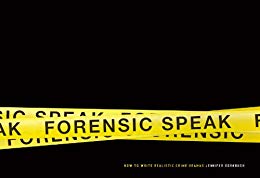 After I finished the academy a writer friend sent me a YouTube video to Michael Wiese Publishing. In the video, Ken Lee announced that MWP was seeking material. My friend encouraged me to send in a query. The book was far from ready, but I thought, why not? On a lunch break one day, I wrote a query and sent it off. In less than an hour later, Ken contacted me to say MWP was interested. However… it took us a year from to get the pitch right and figure out what the book would be. So I didn’t actually sign the book contract until a year after I sent the query. From there it took me another year to write the book. This month will mark exactly three years since I entered the Forensic Science Academy and had the idea to write the book.
After I finished the academy a writer friend sent me a YouTube video to Michael Wiese Publishing. In the video, Ken Lee announced that MWP was seeking material. My friend encouraged me to send in a query. The book was far from ready, but I thought, why not? On a lunch break one day, I wrote a query and sent it off. In less than an hour later, Ken contacted me to say MWP was interested. However… it took us a year from to get the pitch right and figure out what the book would be. So I didn’t actually sign the book contract until a year after I sent the query. From there it took me another year to write the book. This month will mark exactly three years since I entered the Forensic Science Academy and had the idea to write the book.
Having such an intense upbringing around forensic science, how did you decide what to include and what to discard?
My upbringing dealt primarily with death investigation, not so much criminology, DNA, ballistics, and fingerprinting. I wanted to round out my knowledge of crime investigation so I attended the Forensic Science Academy here in Los Angeles. When I was telling my writer friends about my experiences in the academy, they said that they wished they could go through it. I thought, well, why not put the academy in book form for those who aren’t able to take the academy? That inspired me to create a book built on the forensic foundation we were taught in the academy. Forensic science is vast and growing! My book is a smorgasbord. You get a sample of everything. You can pick and choose what you need. And if you want more of one thing, I’ve provided resources that will bring you to a larger meal.
What are the three biggest mistakes new writers make when writing in the crime genre?
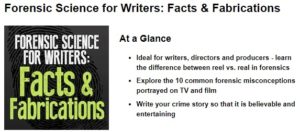 1. Not spending the time, energy, or research to get the forensic facts right.
1. Not spending the time, energy, or research to get the forensic facts right.
2. Thinking that what they see on TV or in movies is correct procedure.
3. Writing crime scenes that come off at cliche, plastic, or static (in action and dialogue!). Learn how to speak forensics! Read Forensic Speak!
Additional advice for crime writers?
- Read and watch crime fiction.
- Figure out what brand of crime fiction best suits you.
- Keep a journal or file of interesting cases you want to explore in your writing.
- Create interesting, dynamic antagonists. Give them a story, a life, an emotional motivation.
Advice for non-fiction writers?
Write about your hobbies and interests to benefits others. Find your niche and explore 10 ways you can share what you know with others.
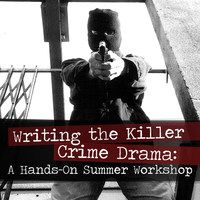 For example… I took the concept behind Forensic Speak and created a monthly newsletter that features a forensic fun fact, a forensic link of the month, a forensic term of the month and a crime writer’s Q&A of the month. Then, I created a series of seminars… Writing the Killer Procedural, 10 Essential Steps in Death Investigation, How to Choose a Crime Show That’s Write For You… You get the picture… be creative and do what inspires you.
For example… I took the concept behind Forensic Speak and created a monthly newsletter that features a forensic fun fact, a forensic link of the month, a forensic term of the month and a crime writer’s Q&A of the month. Then, I created a series of seminars… Writing the Killer Procedural, 10 Essential Steps in Death Investigation, How to Choose a Crime Show That’s Write For You… You get the picture… be creative and do what inspires you.
What do you know now that you wish you knew when you first started writing?
How long things take!!! I wish I had started out with more patience. I still get impatient and anxious at times. I want things to happen sooner, faster, better!
Not to be so hard on myself, but I guess that’s human nature and my stubborn work ethic. It’s okay to push. But you also have to play. Trust in the process and the journey.
Focus on Being Thankful! Have daily gratefulness and keep a gratitude journal. Keeps you sane. You can see how much you really have. Reminds you how far you’ve been. Thank goodness for coffee, yoga, and my wiener dogs.
Could you give a sneak peek into your next projects?
I’m always spinning many plates… here are a few of the dishes I’m working on…
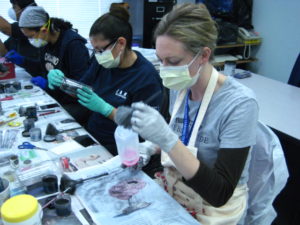 A mystery/thriller novel called Hole in the Woods based on true crime story that I’ve followed for 25 years. We have several publishers waiting to see it. Fingers crossed!
A mystery/thriller novel called Hole in the Woods based on true crime story that I’ve followed for 25 years. We have several publishers waiting to see it. Fingers crossed!
I’ve just finished a crime drama TV pilot called Prey based on the real-life experiences of a group of nuns who pose as prostitutes to save sex trafficked victims. Now we have to go pitch it and try to sell it!
This fall, I’ve been pitching my novel, The Coroner, as a TV series. We have some solid interest so it will be interesting to see what unfolds in 2019 with that project. The second Coroner novel is also completed and releases in fall, 2019.
Which novel/novella/short story have you read that you would like to see made into a movie?
The short story, Before Gwen by Dennis Lehane. A very good friend of mine who is a female director introduced this story to me. She wants us to partner on it. It’s stunning and haunting. I’m all in.
Thanks so much for sharing your experience, expertise and encouragement to crime novelists and screenwriters, Jen. Leaving off, where can DyingWords readers find you and your work?
Go directly to my website. You can sign up for my newsletter here and it’s a great place to find my books, more forensic resources, other free crime stuff and connect on social media!
* * *
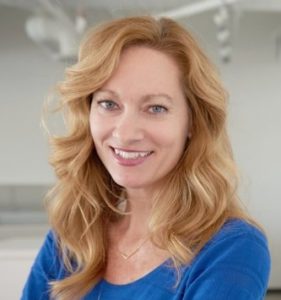 The television or movie screen is the closest most people will ever come to witnessing the forensic world. But Jennifer Dornbush actually lived it. As a daughter of a medical examiner, whose office was in her home, she investigated her first fatality, an airplane crash, when she was 8 years old. Since that first case she has had decades of on-sight experience in death investigation and 360 hours of forensic training through the Forensic Science Academy.
The television or movie screen is the closest most people will ever come to witnessing the forensic world. But Jennifer Dornbush actually lived it. As a daughter of a medical examiner, whose office was in her home, she investigated her first fatality, an airplane crash, when she was 8 years old. Since that first case she has had decades of on-sight experience in death investigation and 360 hours of forensic training through the Forensic Science Academy.
Jennifer now uses these experiences to pen crime fiction for film, TV, and novel. Currently, Jennifer has several crime drama series being developed for television; her mystery novel series, The Coroner, releases in 2018.
Wanting to share her love of forensics with other storytellers, she scribed non-fiction work, Forensic Speak: How To Write Realistic Crime Dramas, published by Michael Wiese Productions, hailed as a north star to creating authentic crime dramas.
She teaches seminars and speaks on writing crime fiction for screen and novel, surviving and thriving the artist’s life, the novelization process of scripts, crime scene science, forensic fundamentals, and death investigation. A more complete list of seminars is found on www.jenniferdornbush.com.

She is frequently asked to consult with writers and has consulted on shows such as *Beauty & The Beast *Deception *Hawaii Five-O *Leverage *Prison Break *Rectify *Revolution *Suits *White Collar *Conviction
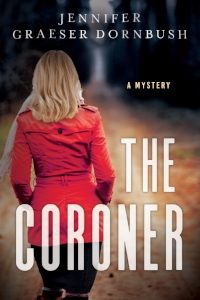 Jennifer hosts a YouTube channel on forensics and crime writing. She has also taught webinars on crime writing through Writer’s Digest; and collaborated with The Writers Store and Script Magazine to produce a video on crime writing for writers. She has taught screenwriting on the high school and university level and mentored writers through the Act One Program, Regent University, and Universita Catholica Milano.
Jennifer hosts a YouTube channel on forensics and crime writing. She has also taught webinars on crime writing through Writer’s Digest; and collaborated with The Writers Store and Script Magazine to produce a video on crime writing for writers. She has taught screenwriting on the high school and university level and mentored writers through the Act One Program, Regent University, and Universita Catholica Milano.
Some of her past speaking clients include The Writers Store, Great American Pitchfest, Crime Writers Weekend, Sisters in Crime, Greenhouse, Act One, Scriptwriters Network, Romance Writers of America, Mystery Writers of America, Story Expo, American Christian Fiction Writers, Highbridge Film Festival, and Universita Cattolica Milano, Italy; Write Canada, and the Pacific Northwest Writers Group.
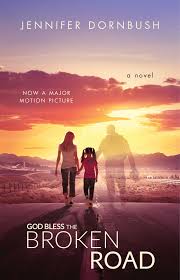 Additionally. Jennifer’s scripts have placed her on the shortlists of the Fox/Blacklist TV Program, Final Draft Big Break, Nichols, Austin, American Zoetrope, and NBC’s Writers on the Verge. Her half-hour forensic comedy, Home Bodies, received a Humanitas’ New Voices Award. Her feature film, God Bless the Broken Road, with God’s Not Dead director, Harold Cronk released in 2018. She also penned the novel adaptation for Howard Books/Simon & Schuster.
Additionally. Jennifer’s scripts have placed her on the shortlists of the Fox/Blacklist TV Program, Final Draft Big Break, Nichols, Austin, American Zoetrope, and NBC’s Writers on the Verge. Her half-hour forensic comedy, Home Bodies, received a Humanitas’ New Voices Award. Her feature film, God Bless the Broken Road, with God’s Not Dead director, Harold Cronk released in 2018. She also penned the novel adaptation for Howard Books/Simon & Schuster.
As an award-winning film scribe, TV writer, and novelist, Jennifer delivers story tools that will help you create high stakes, entertaining crime dramas while incorporating current and authentic forensic methods. She has a distinct knowledge of 14 different forensic disciplines and has served as a forensic consultant for TV and film. She regularly leads seminars on crime writing and forensics for writers in the U.S. and abroad. For more information or to book a speaking engagement, with Jennifer please visit www.jenniferdornbush.com.
Leave Jen a Comment. Whether it’s a forensic, crime-writing or just an interest – don’t be shy.
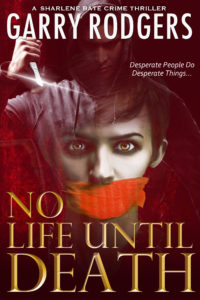 Happy 2019 everyone from Garry Rodgers & DyingWords.net. To start things off right, here’s a special New Years promotion. My psychological crime thriller No Life Until Death is a FREE Amazon Kindle e-Book for the New Year season only. By-pass the party hats, noisy horns and morning headache by staying up late reading something that’ll really ring in. Get your FREE digital copy of No Life Until Death by downloading it here. You can also read it on Kindle Unlimited or email me for an ePub or PDF copy at garry.rodgers@shaw.ca.
Happy 2019 everyone from Garry Rodgers & DyingWords.net. To start things off right, here’s a special New Years promotion. My psychological crime thriller No Life Until Death is a FREE Amazon Kindle e-Book for the New Year season only. By-pass the party hats, noisy horns and morning headache by staying up late reading something that’ll really ring in. Get your FREE digital copy of No Life Until Death by downloading it here. You can also read it on Kindle Unlimited or email me for an ePub or PDF copy at garry.rodgers@shaw.ca.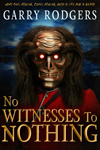 No Life Until Death is a sequel to No Witnesses To Nothing. It’s the second in a series featuring Inspector Sharlene Bate and the perils she finds. This is the first time No Life Until Death has been released as a Kindle Freebie so take advantage of this thrilling crime story while you have time. Here’s the jacket blurb to give you an idea what’s inside No Life Until Death and why it’s sure to keep you turning pages long after Auld Lang Syne.
No Life Until Death is a sequel to No Witnesses To Nothing. It’s the second in a series featuring Inspector Sharlene Bate and the perils she finds. This is the first time No Life Until Death has been released as a Kindle Freebie so take advantage of this thrilling crime story while you have time. Here’s the jacket blurb to give you an idea what’s inside No Life Until Death and why it’s sure to keep you turning pages long after Auld Lang Syne.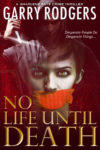 Molly Playfair and Emma Bate have something else in common besides age—an AB Positive blood-type—one of the rarest on earth. Only matching organs will save Molly’s life, forcing the Playfairs to hire unscrupulous scalpels in the Philippines and buy her a transplant through the underground world of human organ trafficking.
Molly Playfair and Emma Bate have something else in common besides age—an AB Positive blood-type—one of the rarest on earth. Only matching organs will save Molly’s life, forcing the Playfairs to hire unscrupulous scalpels in the Philippines and buy her a transplant through the underground world of human organ trafficking.

